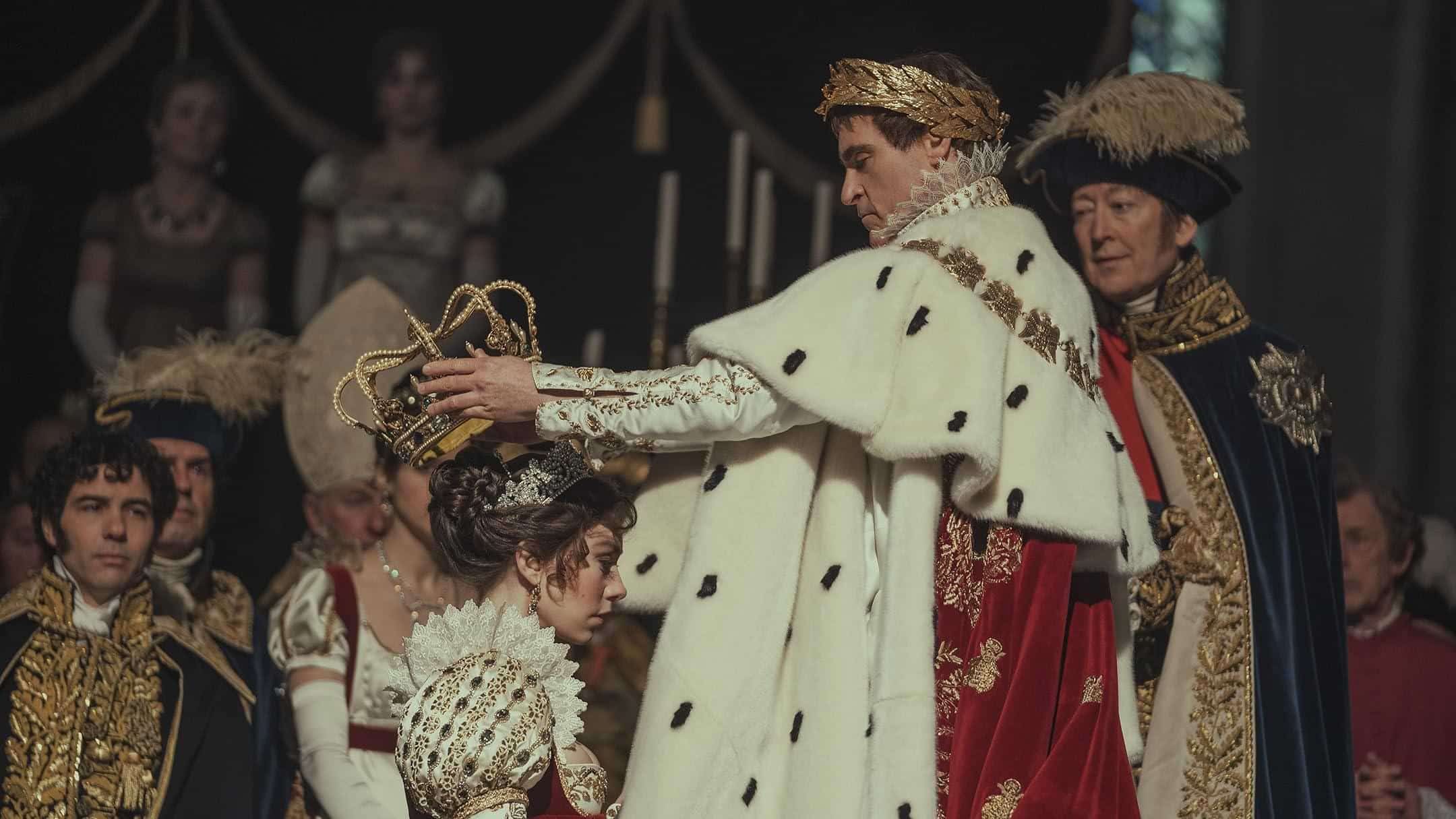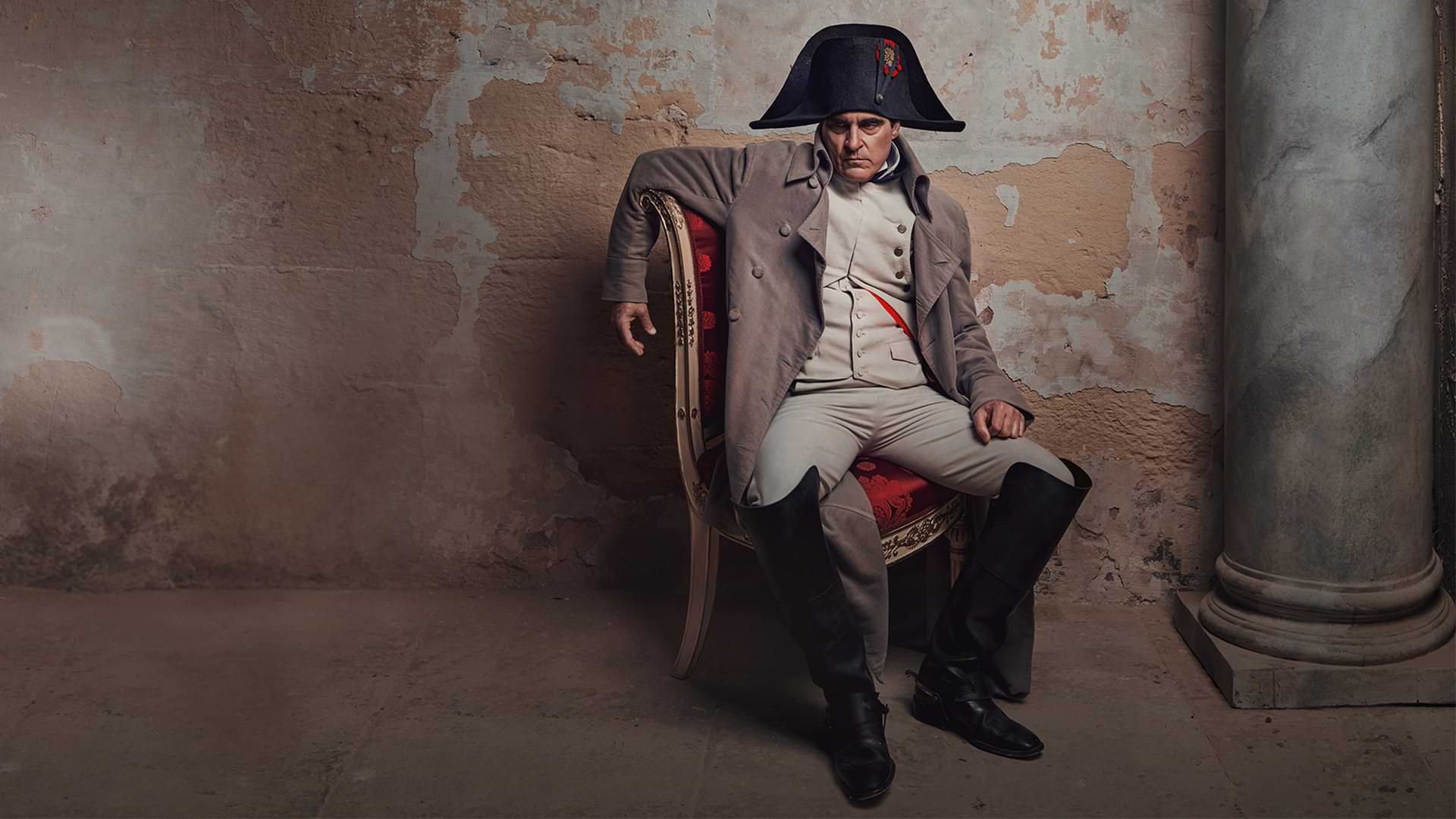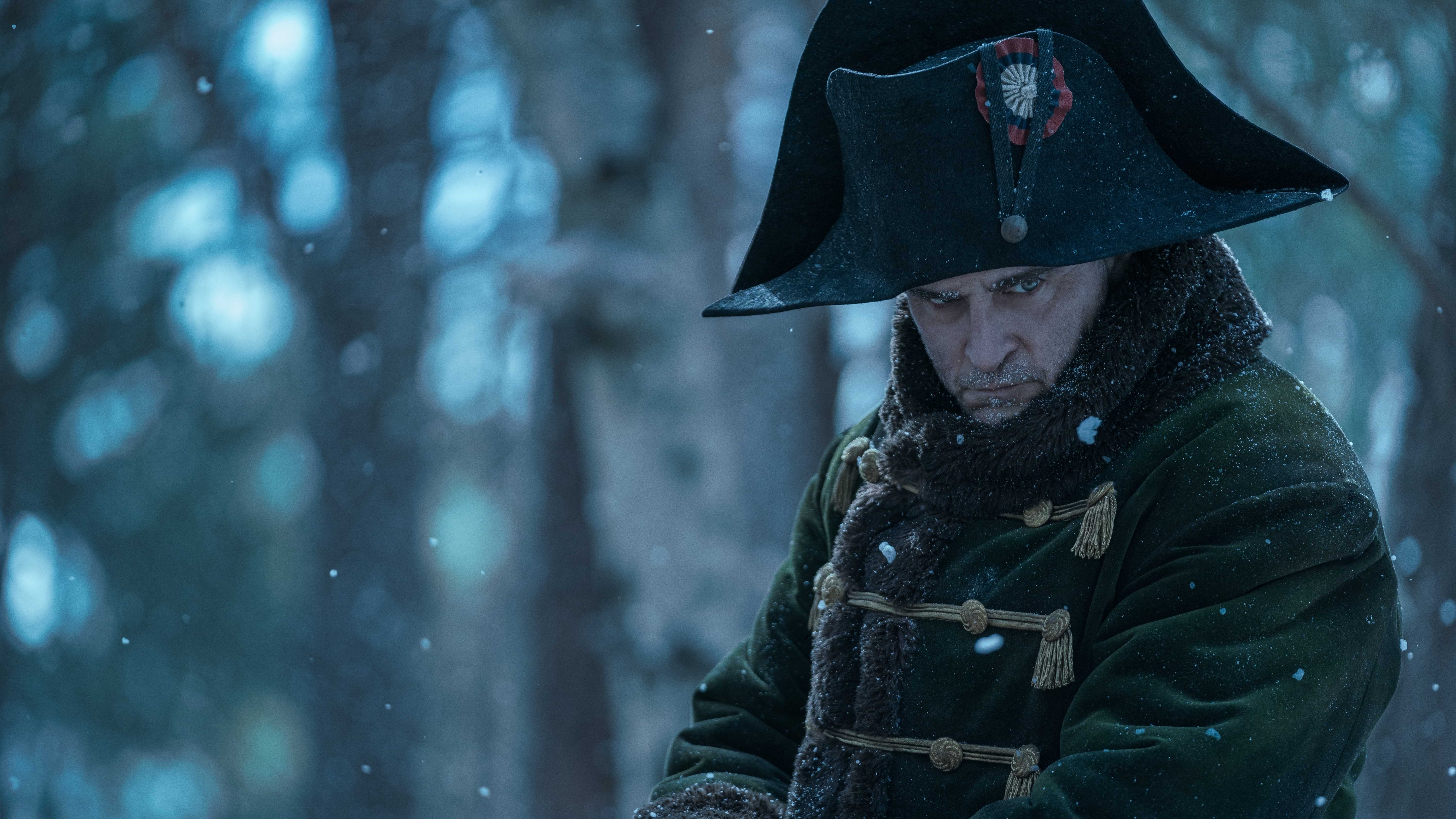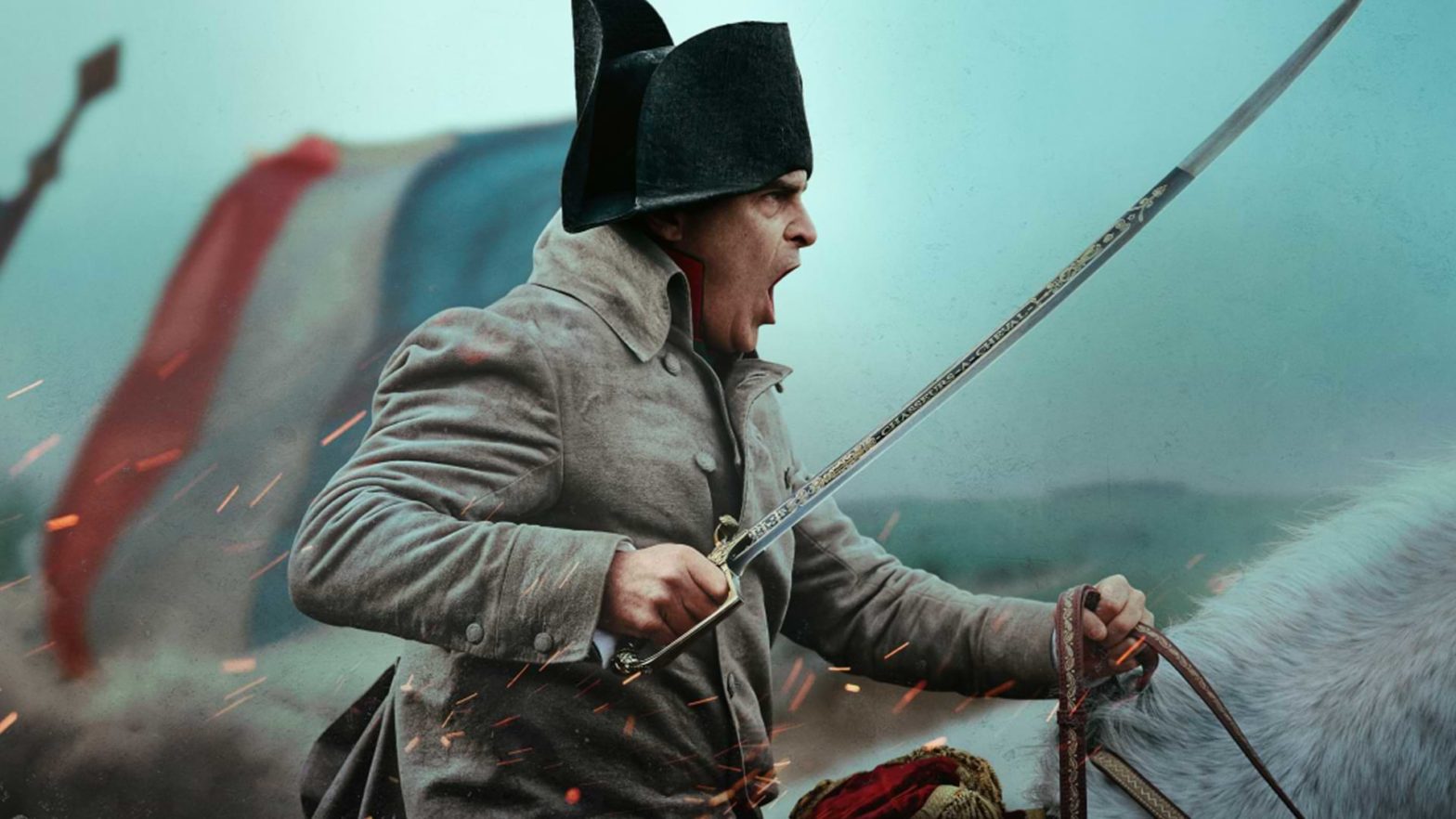On a brisk December evening in Antwerp, the city was cloaked in a typical winter chill, the kind that makes you question why you ever leave your house. It was the kind of night that beckoned for the comfortable seats of a warm cinema. The streets shimmered with rain, the air thick with the scent of damp cobblestones and existential contemplation. It was the perfect setting to hurl ourselves headfirst into Ridley Scott’s latest historical epic, Napoleon. Because nothing warms the soul like watching Europe’s most ambitious short king march his way to infamy.
Our group, a mix of history nerds and part cinephiles, settled into our seats, bracing for a deep dive into the life of a man who managed to conquer half of Europe and still find time for so many love letters. A minor tragedy struck when my companion’s popcorn met an untimely demise, scattering like the remnants of Napoleon’s army post-Russia. We took this as an omen and pressed on.
As the lights dimmed and the opening credits rolled, we steeled ourselves for what was sure to be a spectacle of military strategy, political manoeuvring, and at least one scene where Napoleon Bonaparte dramatically stares out over a battlefield while contemplating his own genius. But the real question lingered: Would Ridley Scott’s take do justice to the man, the myth, the emperor? Would the actors capture the essence of Napoleon’s relentless ambition and his tumultuous love affair with Joséphine de Beauharnais? Or would we leave the cinema feeling as disoriented as Napoleon’s troops in a Moscow winter?
Review
The film unfolds with all the visual grandeur one expects from Ridley Scott: sweeping landscapes, lavish interiors, and battle sequences that make you grateful for modern plumbing and antibiotics. Scott takes us through a journey of the titular character’s life, presenting it in a series of fast-paced vignettes. Napoleon is not so much a traditional biopic as it is a highlight reel of his greatest (and worst) hits.
The pacing is relentless, jumping from the chaotic streets of revolutionary France to the grandeur of Napoleonic battles, like an over-caffeinated history professor trying to cram an entire semester into a single lecture.
One of the film’s unexpectedly comedic moments comes when Napoleon sneers at the British:
You think you’re so great because you have boats.
Joaquin Phoenix as Napoleon when referring to the British
This line, delivered with the confidence of a man who has never successfully invaded England, is a perfect encapsulation of Scott’s ability to sprinkle humour into what is otherwise a film packed with battle cries and brooding stares.
Joaquin Phoenix is both magnetic and perplexing as Napoleon, alternating between the fierce determination of a brilliant tactician, and the real sense of vulnerability of a petulant man-child. His performance suggests a man whose ambition is only rivalled by his ability to make terrible personal decisions. Opposite him, Vanessa Kirby as Joséphine is nothing short of riveting. Their chemistry is electric, their relationship both fascinating and deeply unsettling. It’s a toxic romance of Shakespearean proportions, but with more cannons.

The supporting cast adds texture, but often feels underdeveloped. The brief appearance of Paul Barras (played by Tahar Rahim) offers a glimpse into the political manoeuvring in revolutionary France. The sardonic take on the Duke of Wellington (by Rupert Everett) serves as Napoleon’s smug British counterpart, particularly in their verbal sparring. Additionally, Louis XVIII (by Ian McNeice) provides moments of comedic relief, though he mostly exists to be exiled and then reinstated like an awkward houseguest overstaying his welcome.
Despite these supporting performances, the film still struggles to fully flesh out its secondary characters. Some of history’s most pivotal figures, like foreign minister Talleyrand (by Paul Rhys) and chief of police Joseph Fouché (by John Hodgkinson), who played crucial roles in Napoleon’s regime, are relegated to the background and feel more like historical footnotes than fully realised characters. They’re name-dropped like Easter eggs for those who paid attention in history class. This is unfortunate, as these were men whose political scheming made Westeros look like a well-organised book club.
This leaves the audience with a sense that, while Phoenix and Kirby shine brightly, the surrounding constellation of historical figures remains relatively dim, potentially oversimplifying the complex relationships and power dynamics that defined this tumultuous era.

Scott’s greatest crime, however, is the ruthless efficiency of his rapid montages which undermine the depth and complexity these historical events deserve. The film’s pacing is less “slow burn historical epic” and more “speed-run of European conquest.” We blaze through major events at breakneck speed. In my view, the film can be broadly divided into four thematic parts of comparable length:
- The French Revolution – Napoleon rises.
- Napoleon’s string of victories – Napoleon thrives.
- The ill-fated Russia campaign happens – Napoleon regrets.
- The eventual downfall at Waterloo – Napoleon facepalms.
And the director seems to rush through them at break-neck speed. While this keeps the film moving, it often leaves little time for reflection. From part two, where we see the victorious Emperor of the French, we immediately dive into his disastrous Invasion of Russia (1812), a turning point in Napoleon’s downfall. The Russian campaign feels like a brutal winter weekend trip gone horribly wrong, rather than a catastrophic military blunder.

Then again, there’s only so much you can show and tell in 2 hours and 38 minutes of film. That’s one of the reasons why this film feels so rushed. Take for example the grand finale during the last quarter of the story, featuring the decisive Battle of Waterloo (18 June 1815) in our very own Belgium. Contrasting with the 1970 film Waterloo, which meticulously recreated the infamous battle with astonishing detail and scale, Scott’s Napoleon is more dramatic montage than moment. Cinematic, yes, but lacking the gut-punch of true military catastrophe.
Where Waterloo used 17,000 soldiers to bring authenticity to its scenes, Scott’s approach leans heavily on modern cinematic techniques, possibly CGI, to craft its battle sequences. While visually striking, it lacks the grounded intensity that makes historical warfare feel tangible. Instead, we get a stylised retelling. This divergence in style might not satisfy purists seeking historical re-enactment but offers a different, more stylised view of history.
Despite these criticisms, the action scenes are a spectacle. They might rely on CGI, but they are executed with a flair that keeps you engaged.
Verdict
Ridley Scott’s Napoleon is a film that is bound to divide audiences. It resonates differently with each viewer, depending on their expectations. The film is not a comprehensive biopic, nor does it try to be. Personally, I would describe it as a grand, chaotic, visually stunning fever dream of one of history’s most fascinating figures. It as a cinematic portrayal that intertwines fast-paced storytelling with a focus on the intense, often abusive, romance between Napoleon and Joséphine.
For those seeking perfectionist historical accuracy, this film may frustrate. Battles and betrayals are condensed into snapshots. Key political figures are given the cinematic equivalent of a polite nod. But for those who approach it as a character study there is much to enjoy: an exploration of power, obsession, and the sheer audacity of a man who once sold an entire continent to fund his European conquest.
Scott understands that history is as much about storytelling as it is about facts. When viewed through the lens of cinema, it’s the director’s vision of bringing a complex historical figure to life. Not just as a conqueror. His Napoleon is a man of contradictions: brilliant yet reckless, romantic yet ruthless, victorious yet doomed. And in capturing that, the film succeeds.
Ultimately, Napoleon is less a history lesson and more an impressionistic portrait: flawed, exaggerated, but undeniably compelling. It invites you not just to watch, but to feel the weight of ambition, the sting of defeat, and the absurdity of believing you can outmanoeuvre the British navy without boats.
